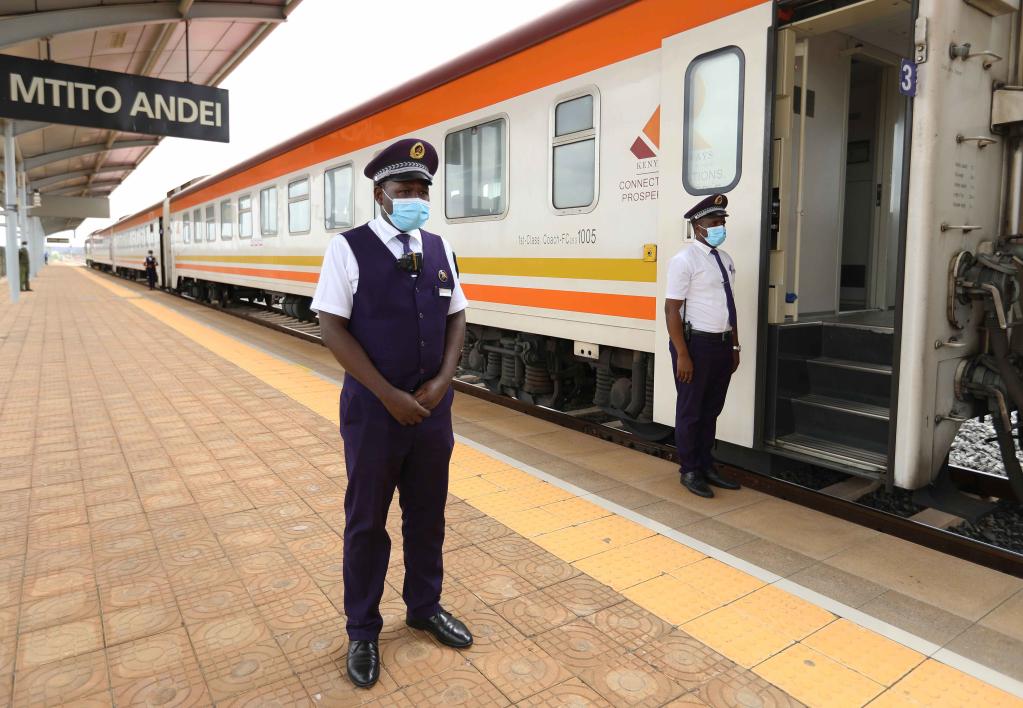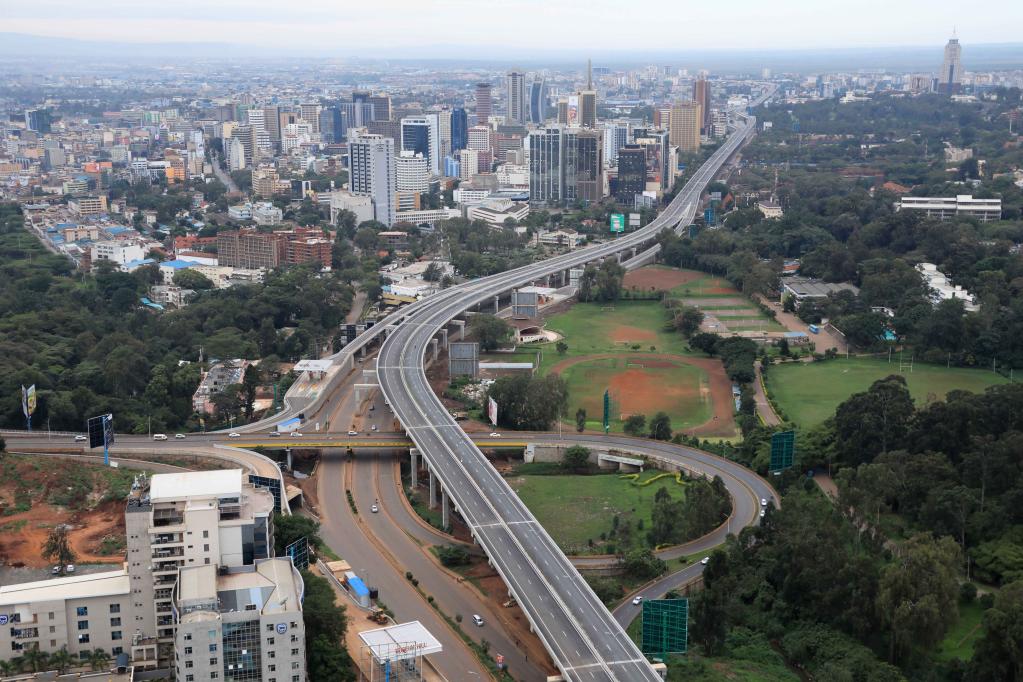
Train conductor Joseph Mwangi waits for confirmation of departure information at Mtito Andei Station on the Mombasa-Nairobi Railway, Kenya, July 29, 2022. (Xinhua/Dong Jianghui)
Experts and scholars said that China's Belt and Road Initiative has contributed immensely toward transforming Africa's developing economies through infrastructure development, unemployment reduction and improved trade, among others.
KIGALI, Aug. 25 (Xinhua) -- Experts and scholars said Wednesday that China's Belt and Road Initiative (BRI) has contributed immensely toward transforming Africa's developing economies through infrastructure development, unemployment reduction and improved trade, among others.
They made the remarks while speaking at a one-day virtual forum, titled "The importance of China's Belt and Road Initiative to Africa."
"China is not here to exploit Africa as the western world perceives, because looking at the African infrastructure development side, the BRI is helping Africa to transform itself. China comes with the help Africans need," said Frederick Golooba Mutebi, a Ugandan independent researcher and analyst.
He believed that China is significantly contributing to Africa's infrastructure development which is one of the major constraints of economic transformation on the continent.
"China through Belt and Road Initiative has come at the right time when Africa is in critical need of infrastructure development and improved global trade opportunities," said Mutebi.
He pointed out that Africa's traditional development partners with a long history of exploiting Africa will find it difficult to compete with the China-proposed BRI because the initiative is based on mutual cooperation and friendship, not exploitation.
Speaking at the forum, Mustafa Hyder Sayed, executive director of the Pakistan-China Institute, said that BRI has introduced a wide range of projects that are currently beneficial to African economies.
"Through Belt and Road Initiative, roads, railways, bridges, hospitals, schools and airports among others, have been constructed in Africa, which has boosted trade, increased job creation, improved transport services and education and health among African countries," he added.
BRI has positively impacted local residents by providing them with job opportunities, especially those employed in the construction projects, said Sayed, adding that BRI is a global development initiative based on cooperation and multilateral development, not a debt trap as termed by the western world.

Photo taken on May 8, 2022 shows a section of the Nairobi Expressway in Nairobi, Kenya. (Xinhua/Dong Jianghui)
Speaking at the meeting, Zha Daojiong, professor of international political economy at the School of International Studies and Institute of South-South Cooperation and Development with Peking University, China, said that BRI is focused on facilitating international trade and enabling a smooth global supply chain.
"China's Belt Initiative has provided a platform to low and middle-income economies in Africa to register significant growth in terms of infrastructure development, job creation and improved trading opportunities," he added.
Adhere Cavince, a Kenyan scholar of international relations with a focus on China-Africa relations, however, said that the BRI has enabled China to share its development experience with African developing countries. "The Kenyan government has worked closely with China, which yielded great results like the Mombasa-Nairobi Standard Gauge Railway, which played an important role in boosting Kenya's economic growth," he said.
Cavince said that the BRI has delivered jobs and opened avenues for increased digital cooperation, adding that the initiative has the potential to move the entire continent of Africa forward.
Speaking at the forum, George Nsamba, an independent risk management practitioner based in Johannesburg, South Africa, said that China through BRI has introduced a lot of construction projects in southern Africa which has improved the lives and incomes of many people in southern Africa.
"BRI made a significant improvement in developing Africa's infrastructures and launched projects that lead to the growth of agricultural productivity. During the COVID-19 pandemic, Chinese doctors provided medical support to hospitals and a wide range of hospitals were constructed in southern African countries to accommodate COVID-19 patients," he said.
Nsamba explained that BRI has led to an increase in infrastructure projects in Africa through the construction of shopping malls, bridges, railways, schools and hospitals, which has boosted Africa's social and economic transformation.
Mweusi Karake, former head of public relations/corporate communication at the Common Market for Eastern and Southern Africa (COMESA), however, said that BRI has a huge potential for African countries to improve intra-African trade and boost global import and export supply chains.
"It is easy for Africans to relate to Africa because if China has made it, Africa can make it. The fact that the Chinese were able to build their country from scratch and get where it is today, should inspire African countries," Karake stressed.
Proposed by China in 2013 to promote common growth and gain shared benefits, the BRI involves infrastructure development, trade and investment facilitation and people-to-people exchanges aimed at improving connectivity on a trans-continental scale.
China has been Africa's largest trading partner for more than a dozen years. Under the Belt and Road Initiative, the two sides have multiplied their efforts to cooperate.




 A single purchase
A single purchase









